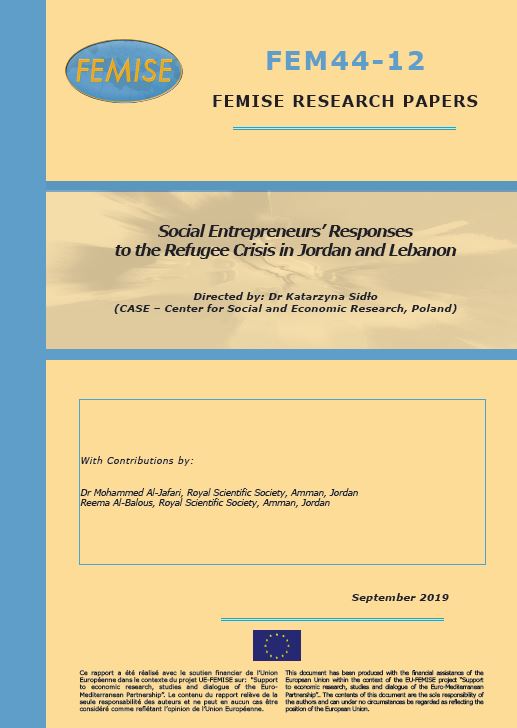FEMISE Research Paper FEM44-12: Social Entrepreneurs’ Responses to the Refugee Crisis in Jordan and Lebanon

Following the outbreak of the civil war in Syria in 2011, an estimated 1.5 million and 1.3 million Syrian refugees sought a safe haven in Lebanon and Jordan respectively (Reuters, 2017; Ghazal, 2017). Considering that the population of Jordan is just under 10 million, and that of Lebanon – under 7 million (World Bank, 2018), this sudden and unexpected flow of refugees resulted in severe disruption, stretching the absorptive capacities of the two countries well beyond their limits, and necessitating massive relief efforts for refugees and host communities alike. In their efforts to manage the situation, the authorities in both countries have been supported by international community and civil society. Increasingly, private sector has been stepping in as well (Berfond et al., 2019). Among many institutions and individuals aiming to alleviate the situation, an increasing number of less traditional actors – social entrepreneurs – could be also observed.
Against this background, the main of this exploratory study was to explore the ways in which social entrepreneurs in Jordan and Lebanon have been helping to alleviate the refugee crisis in both countries.
The main finding is that although social entrepreneurs overcome numerous obstacles in order to achieve their goals, assessment of the real impact of their actions is not possible due to lack of social impact measurement mechanisms in place. Judging their success is also impeded by the fact that the majority of the social enterprises examined is relatively young, being predominantly established within the past five years.
Latest Publications
































 Syria
Syria 



